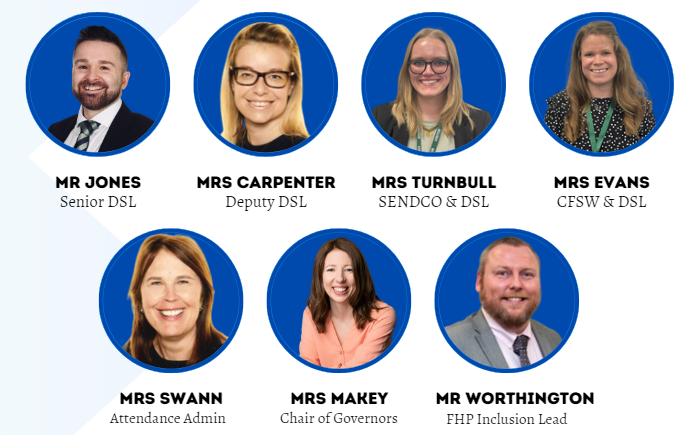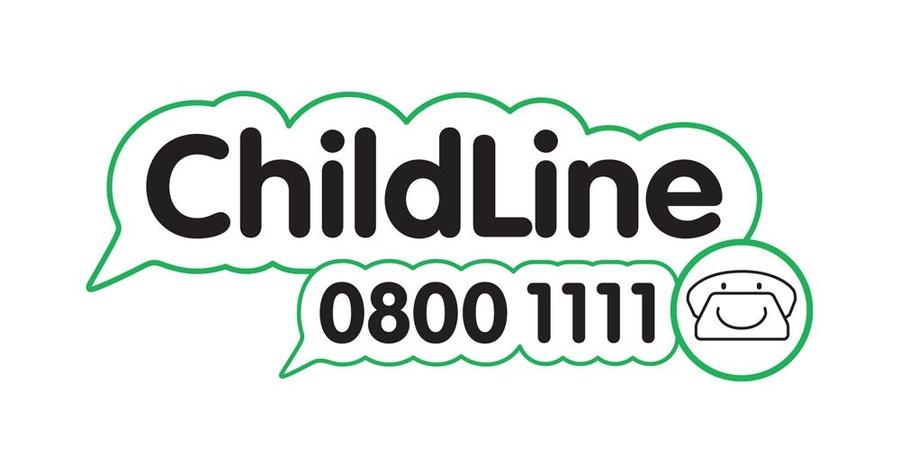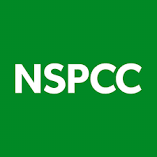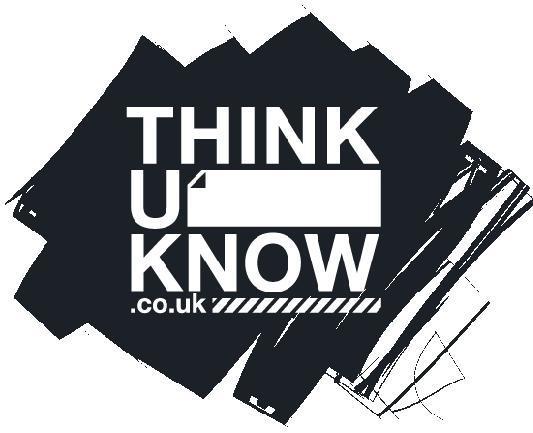Safeguarding
Our Commitment to Safeguarding
Killisick Junior School is committed to safeguarding and promoting the welfare of children and expects all staff and volunteers to share this commitment.
We have a number of policies and procedures in place that contribute to our safeguarding commitment, including our Child Protection Policy and Safeguarding Policy which can be viewed in the policies section on our website.
Sometimes we may need to share information and work in partnership with other agencies, when there are concerns about a child’s welfare. We will ensure that our concerns about our pupils are discussed with parents/carers first, unless we have reason to believe that such a move would be contrary to the child’s welfare.
We actively support the Government’s Prevent Agenda to counter radicalism and extremism.
Parents, carers and children can also access the DfE's illustrated guide to Working Together to Safeguard Children
The Safeguarding Team
Policies
- 2024-2025 KJS SAFEGUARDING & CHILD PROTECTION POLICY
- 2024-2025 KJS EXECUTIVE SUMMARY OF SAFEGUARDING & CHILD PROTECTION POLICY
- SAFEGUARDING FLOWCHART
- 2024-2025 KJS ANTIBULLYING POLICY
- 2024-2025 KJS CHILD-ON-CHILD POLICY
- 2024-2025 KJS FIRST AID POLICY
- 2024-2025 KJS GUIDANCE ON VISITORS & VIPS
- 2024-2025 KJS ADMINISTERING OF MEDICINES POLICY
- 2024-2025 KJS INTIMATE CARE POLICY
- 2024-2025 KJS POSITIVE HANDLING POLICY
For Safeguarding concerns during school hours, please contact us on:
0115 953 5585
For Safeguarding concerns out of school hours, or in the event of a school closure, please contact us at:
safeguarding@killisick.notts.sch.uk
If you are concerned about a child, you can also contact Nottinghamshire Council’s Social Care Team on 0300 500 80 90 or by completing an online referral form.
Safeguarding through the curriculum
The legal context for safeguarding education
These duties are set out in the 2002 Education Act (the 2010 Academies Act also refers to the broad and balanced curriculum). Schools also have statutory responsibilities in relation to promoting pupil wellbeing and pupil safeguarding (Children Act 2004) and community cohesion (Education Act 2006). The Equality Act 2010 also places duties on schools to help to reduce prejudice-based bullying and in doing so to keep protected characteristic groups safe. PSHE education plays an important part in fulfilling all of the responsibilities (see further detail on PSHE education and safeguarding, below).
All schools have responsibilities relating to the safety of children in their care. Keeping Children Safe in Education (2023), paragraph 129 states:
“Governing bodies should ensure that children are taught about how to keep themselves and others safe, including online. It should be recognised that effective education will be tailored to the specific needs and vulnerabilities of individual children, including children who are victims of abuse, and children with special educational needs and/or disabilities.”
The UN Convention on the Rights of the Child
Article 19.1 : ‘Parties shall take all appropriate legislative, administrative, social and educational measures to protect the child from all forms of physical or mental violence, injury or abuse, neglect or negligent treatment, maltreatment or exploitation, including sexual abuse, while in the care of parent(s), legal guardian(s) or any other person who has care of a child.’
|
Staying Safe in the community |
|
|
We aim to ensure that all children are able to look after themselves in the community and act in a responsible way. We promote respect for people and property, fostering strong relationships with friends and an awareness of the dangers they may face whilst in the community. |
|
|
Links to: Respect Responsibility Confidence UN CRC Article 31: Parties shall respect and promote the right of the child to participate fully in cultural and artistic life and shall encourage the provision of appropriate and equal opportunities for cultural, artistic, recreational and leisure activity.
|
|
|
British Values |
|
|
In 2011, the government defined British Values as democracy, the rule of law, individual liberty, mutual respect and tolerance of different faiths and beliefs. We regularly promote these values through our own school values (respect and responsibility), curriculum and wide range of enrichment activities. |
|
|
Links to: Democracy Rule of Law Individual liberty Mutual respect Tolerance of different faiths/beliefs UN CRC Article 13.1: The child shall have the right to freedom of expression; this right shall include the freedom to seek, receive, and impart information and ideas of all kinds, regardless of frontiers, either orally, in writing, or in print, in the form of art, or through any other media of the child’s choice. The exercise of this right may be subject to certain restrictions, but these shall only be such as are provided by law and are necessary. |
|
|
Child Sexual Exploitation |
|
|
Although not appropriate for explicit teaching, this does link to other topics such as Stranger Danger and the NSPCC Pants Campaign. We ensure our children also have a strong sense of rights and responsibilities and understanding citizenship issues such as right and wrong. All school staff are highly aware of identifying signs of CSE and report this to DSLs using CPOMS. |
|
|
Links to: Respect Responsibility UN CRC Article 19.1: Parties shall take all appropriate legislative, administrative, social and educational measures to protect the child from all forms of physical or mental violence, injury or abuse, neglect or negligent treatment, maltreatment or exploitation, including sexual abuse, while in the care of parent(s), legal guardian(s) or any other person who has care of a child. |
|
|
Bullying including cyberbullying |
|
|
At school we have a zero-tolerance approach to bullying and to support us in this we ensure children and parent/carers have an in depth understanding of what bullying is and how to report this. To promote awareness of bullying we use ‘STOP’ and for eSafety we use ‘Be responsible, Be respectful and Be confident’. We ensure that children are aware of the different forms of bullying:
|
|
|
Links to: Respect Responsibility UN CRC Article 29.1: The preparation of the child for responsible life in a free society, in the spirit of understanding, peace, tolerance, equality of sexes, and friendship among all peoples, ethnic, national, and religious groups and persons of indigenous origins. |
|
|
Domestic Abuse |
|
|
Domestic abuse is any type of controlling, bullying, threatening or violent behaviour between people in a relationship. But it isn’t just physical violence – domestic abuse includes emotional, physical, sexual, financial or psychological abuse. Domestic abuse can seriously harm children and young people. Witnessing domestic abuse is really distressing and scary for a child and causes serious harm. Children living in a home where domestic abuse is happening are at risk of other types of abuse too. Children can experience domestic abuse or violence in lots of different ways. Although a difficult topic to share with children we do provide children with a clear understanding of what is right and wrong and cover this topic briefly through UNICEFs ‘For Every Child’ every year during Transition. |
|
|
Links to: Respect Responsibility Confidence UN CRC Article 19.1: Parties shall take all appropriate legislative, administrative, social and educational measures to protect the child from all forms of physical or mental violence, injury or abuse, neglect or negligent treatment, maltreatment or exploitation, including sexual abuse, while in the care of parent(s), legal guardian(s) or any other person who has care of a child. |
|
|
Drugs |
|
|
Children are taught that drugs have different purposes; some are used to help people such as medicines where as others such as alcohol are socially acceptable but you have to be a certain age to use. Children are made aware of the negative issues of such recreational drugs and this links to ensuring children have a healthy lifestyle. Children are also taught about being safe around such household drugs and should never take them unless given to by trusted adults. Illegal drug use is taught in upper KS2 and is taught alongside issues around peer pressure and the negative effects if using such substances. |
|
|
Links to: Respect Responsibility Confidence UN CRC Article 19.1: Parties shall take all appropriate legislative, administrative, social and educational measures to protect the child from all forms of physical or mental violence, injury or abuse, neglect or negligent treatment, maltreatment or exploitation, including sexual abuse, while in the care of parent(s), legal guardian(s) or any other person who has care of a child. |
|
|
Female Genital Mutilation |
|
|
Similar to CSE, FGM isn’t explicitly taught (although touched upon in Y6 SRE topic) at Killisick but topics relate to understanding children’s rights and responsibilities and NSPCC ‘Pants’ campaign makes it clear what is right and wrong for personal space and privacy. Staff are trained to be aware of and to report the key signs of a child whom may be at risk of FGM (list not exhaustive) and to report to DSLs using My Concern. Key indicators are children talking about or staff becoming aware of:
|
|
|
Links to: Respect Responsibility Confidence UN CRC Article 24.3: States parties shall take all effective and appropriate measures with a view to abolishing traditional practices prejudicial to the health of children. |
|
|
Mental Health |
|
|
Mental health is taken very seriously at Killisick School and we believe that the emotional wellbeing of children is as important as the physical. Common mental health problems that occur in children are: Depression, Self-harm, Generalised Anxiety Disorder, Post Traumatic Stress disorder, ADHD and Eating disorders. Through our curriculum we foster resilience and relationship skills empowering children to manage stressful situations. We also ensure all children are aware of and understand the support systems that are in place to support them, their families and their friends if needed. We also have a network of both peers and staff who work with targeted children who require mentor to support dealing with traumatic events that may have occurred. |
|
|
Links to: Respect Responsibility Confidence UN CRC Article 19.1: Parties shall take all appropriate legislative, administrative, social and educational measures to protect the child from all forms of physical or mental violence, injury or abuse, neglect or negligent treatment, maltreatment or exploitation, including sexual abuse, while in the care of parent(s), legal guardian(s) or any other person who has care of a child. |
|
|
Preventing Radicalisation |
|
|
From June 2015 Prevent Duty for schools was introduced with links to the 2011 definition for British Values. In school we provide children with many opportunities to discuss discrimination topics such as racism and we foster and promote tolerance of other faiths. We also address real world events to address prejudice of any sort promoting the value of human life without persecution. Radicalization can be difficult to spot but adults are trained to report concerns to DSLs as soon as they are made aware of any of the possible indicators. |
|
|
Links to: Respect Responsibility Confidence British Values UN CRC Article 13.2: The exercise of this right (13.1) may be subject to certain restrictions, but these shall only be such as are provided by law and are necessary:
|
|
How do we keep children safe at school?
There is so much that we do to keep children safe at school - from the physical site security to supporting mental health and wellbeing. We regularly remind our children of all the different things we do.
Below is a copy of the presentation we share with children. Take a look.





